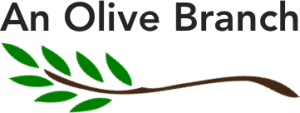Healthy Buddhist Communities Training

We are delighted to announce that NDF will be participating in piloting a series of training modules on ethical conduct for Buddhist communities. Leaders and members will receive training on healthy teacher-student boundaries, effective ethics programs, and accountable leadership and board governance. We are in the process of scheduling these trainings and will be sending the dates to participants shortly. In addition to modules specifically for teachers, Board members and other leaders, NDF sangha community members will be invited to participate in a training module (see #2 below), to be announced in upcoming communications. We are very grateful to The Hemera Foundation for sponsoring these trainings and providing them free of charge.
 The Hemera Foundation is supporting An Olive Branch Associates in developing training modules which provide in-depth information about sexual misconduct and other abuses of power in Buddhist communities as well as proactive approaches for its prevention. An Olive Branch’s mission is to help spiritual communities proactively reduce the potential for sexual and other forms of misconduct and the impact of destructive discord; they also help spiritual communities respond to the suffering, chaos, and breakdown that results from leaders’ abuse of power. Their experience with helping Buddhist communities address misconduct enables them to bring real-life experiences to participants.
The Hemera Foundation is supporting An Olive Branch Associates in developing training modules which provide in-depth information about sexual misconduct and other abuses of power in Buddhist communities as well as proactive approaches for its prevention. An Olive Branch’s mission is to help spiritual communities proactively reduce the potential for sexual and other forms of misconduct and the impact of destructive discord; they also help spiritual communities respond to the suffering, chaos, and breakdown that results from leaders’ abuse of power. Their experience with helping Buddhist communities address misconduct enables them to bring real-life experiences to participants.
The training consists of a set of four interactive and interrelated modules:
- Buddhist Teachers/Instructors will learn about factors that contribute to sexual and other forms of misconduct, teacher-student relationships, transference and countertransference, maintaining healthy boundaries, consequences of misconduct for organizations and students, pastoral roles and responsibilities, and how to promote ethical conduct.
- Community Members will learn about their own developmental process as students in relationship to their teacher(s); better understand the causes of sexual misconduct and the potential for abuse in student/teacher relationships; and appreciate the predictable consequences of misconduct for organizations and students, how to ensure healthy boundaries, the nature and limits of the teacher/student relationship, and practices for keeping communities healthy.
- Administrative leaders, board members, and spiritual leaders will learn about components of ethics programs including ethics policies and grievance procedures, how to develop and implement an effective ethics program, and how to evaluate their organization’s ethics program using a recommended tool.
- Administrative leaders, board members, spiritual leaders will learn about the legal framework for nonprofit organizations, board responsibilities, individual fiduciary duties, board structure and dynamics, and separation of spiritual and secular roles.




